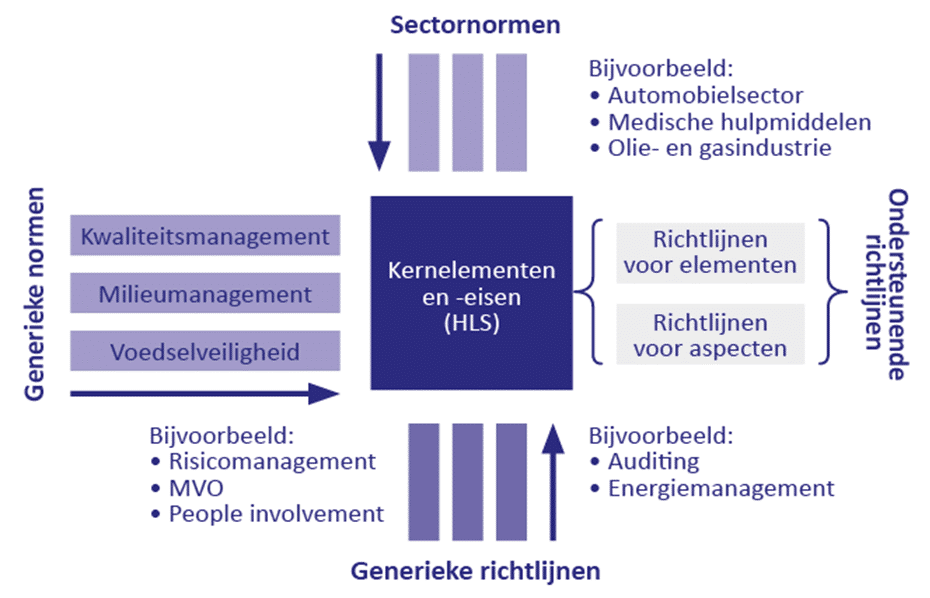Quality Management
Discover how ISO 9001 and IATF 16949 can help your company grow and compete in demanding markets.
ISO 9001 implementation
In today’s dynamic world, quality standards are essential for success in all sectors – industry, government, construction, healthcare, and more. ISO 9001:2018 is the world’s most widely adopted quality management system, designed to help organizations meet the highest standards of product and service delivery.
The High-Level Structure (HLS) approach focuses on the organization and the chain of which it is part, in contrast to the old standard. Management has a much more emphatic role than before. Because of Symbol’s pragmatic method of implementation, the ISO9001:2018 High Level Structure standard aligns with companies’ entrepreneurial spirit and interacts nicely with ongoing Lean and continuous improvement programs. Symbol sees ISO9001 as a means of providing structure, managing risks and creating a culture of improvement, rather than an unwieldy management system that is mainly based on a lot of administration.
Symbol’s Q experts help implement the best-fit quality management system and also make it live within the organization.
On this page:
ISO 9001 implementation
Areas of focus
IATF 16949 implementation
The difference between ISO 9001 and IATF 16949

ISO 9001 quality management can be divided into three focus areas
ISO 9001 quality management can be divided into three focus areas
Quality Planning
Quality Planning is a crucial aspect of effective quality management. It focuses on strategically planning how organizations can meet their quality policies.
This includes translating that policy into measurable objectives and specific requirements.
Quality Control
Quality Control focuses on identifying and detecting errors in production processes. This includes thorough inspections and controls applied during production to ensure that only high-quality products reach the following process steps or are delivered to customers
Quality Assurance
Quality Assurance is all about prevention. It includes proactive measures to prevent errors in both products and services. This begins as early as the preparation stage of production, where strict controls and procedures are implemented to ensure that the highest quality standards are maintained throughout the process.
IATF 16949 implementation
For companies (Tier-1 & Tier-2) supplying the automotive industry (OEM), it is mandatory to work according to the guidelines of IATF 16949. Symbol’s IATF-certified experts have already helped more than 100 automotive companies implement IATF 16949 and apply Core Tools such as APQP, PPAP, FMEA, MSA, SPC and 8D Problem Solving.
Even outside the automotive sector, more and more companies, particularly in hight tech, are working to the IATF standard. For example, Symbol has supported many companies in the ASML supply chain to meet increasingly stringent quality requirements.
Want to learn more or educate yourself? Symbol specializes in IATF 16949 training, including Core Tools and IATF 16949 Auditor training. Symbol works with accredited IAF 16949 1st/2nd party auditors. Whether you are directly or indirectly involved in IATF 16949 standards, we offer practical and effective training to help you meet the requirements.

What is the difference between ISO 9001 and IATF 16949?
1. Sectors
ISO 9001
ISO 9001 is a general international standard for quality management. It is applicable to organizations in a variety of industries, including manufacturing, services, healthcare, education, and more. ISO 9001 is not specific to a single industry.
IATF 16949
IATF 16949 is an industry-specific standard developed specifically for the automotive industry. It is intended for organizations involved in the production and supply of parts and materials to the automotive industry.
2. Scope
ISO 9001
ISO 9001 emphasizes general quality management principles such as customer satisfaction, continuous improvement and process control. It requires no specific technical or product-related requirements.
IATF 16949
IATF 16949 includes all the requirements of ISO 9001 but adds specific requirements relevant to the automotive and semiconductor sectors. These include stringent requirements for product safety, product traceability, risk assessments, and more.
3. Certification
ISO 9001
ISO 9001 certification is used worldwide. Companies can be certified by recognized bodies. Symbol helps companies get ready for certification.
IATF 16949
IATF 16949 certification is mandatory for Tiers in the automotive sector. They can be certified by official bodies. Symbol helps companies prepare for this certification and train the required internal auditors.
Ready for quality and for certification?
Symbol supports the development of quality management systems according to ISO9001 and IATF 16949. Does your organization need help getting ready for certification or do employees need to take the necessary training? Then contact us today and request a consultation!